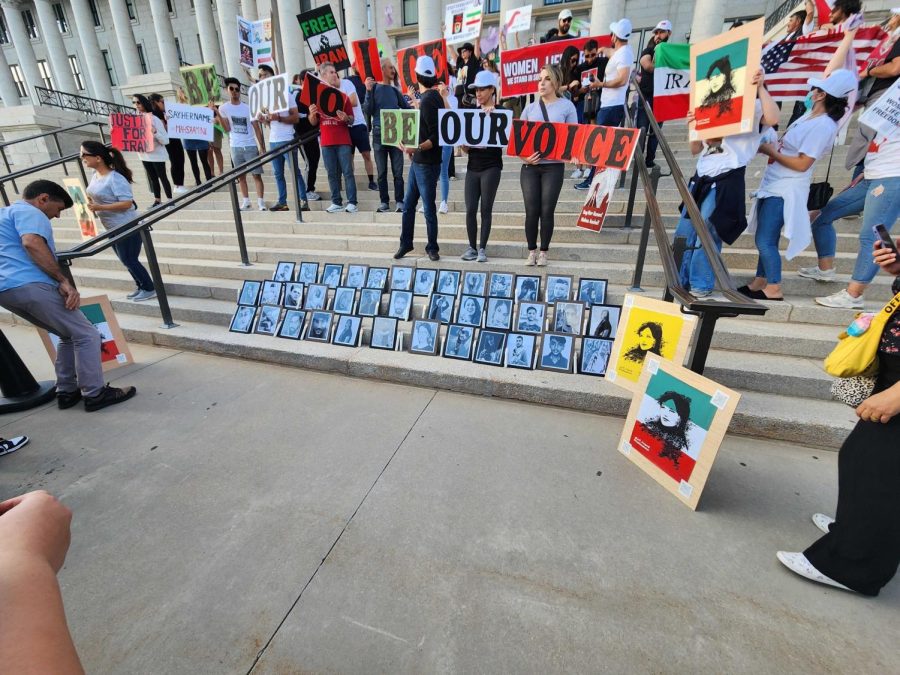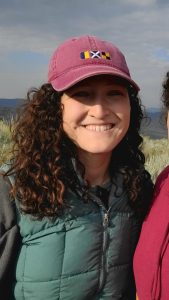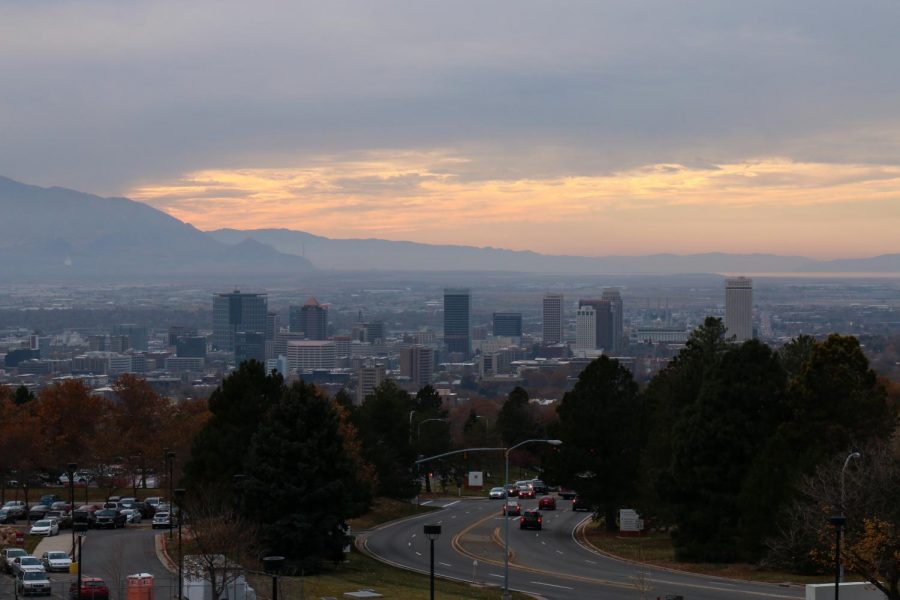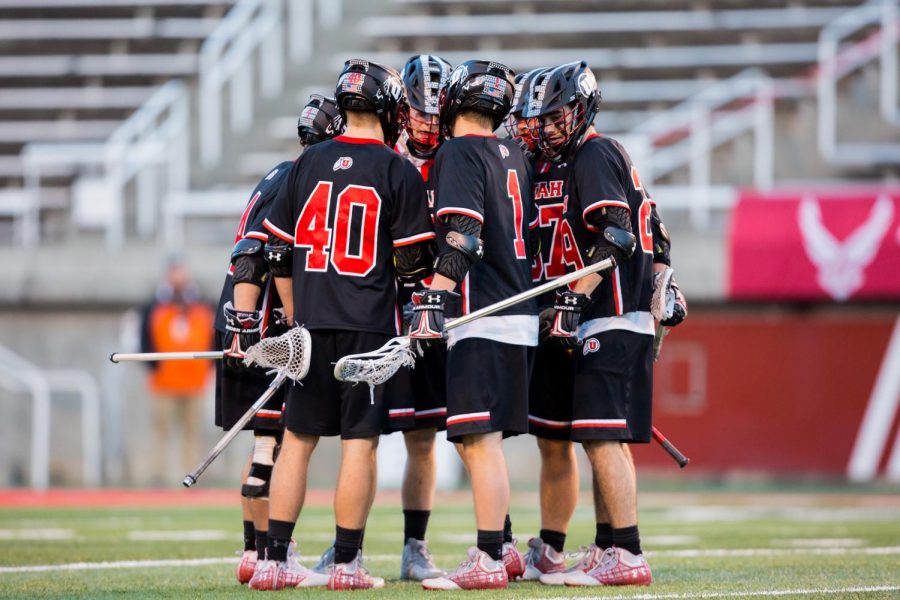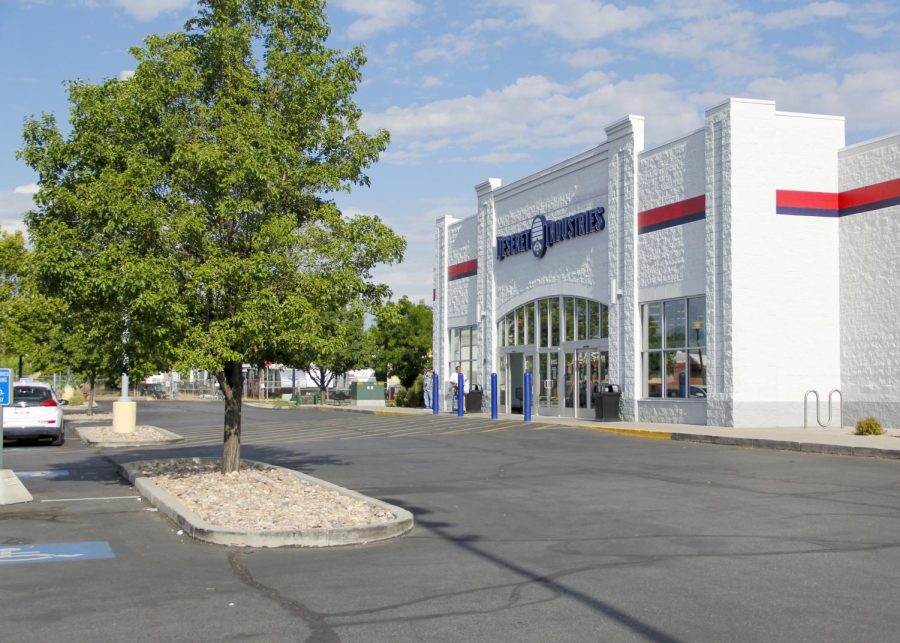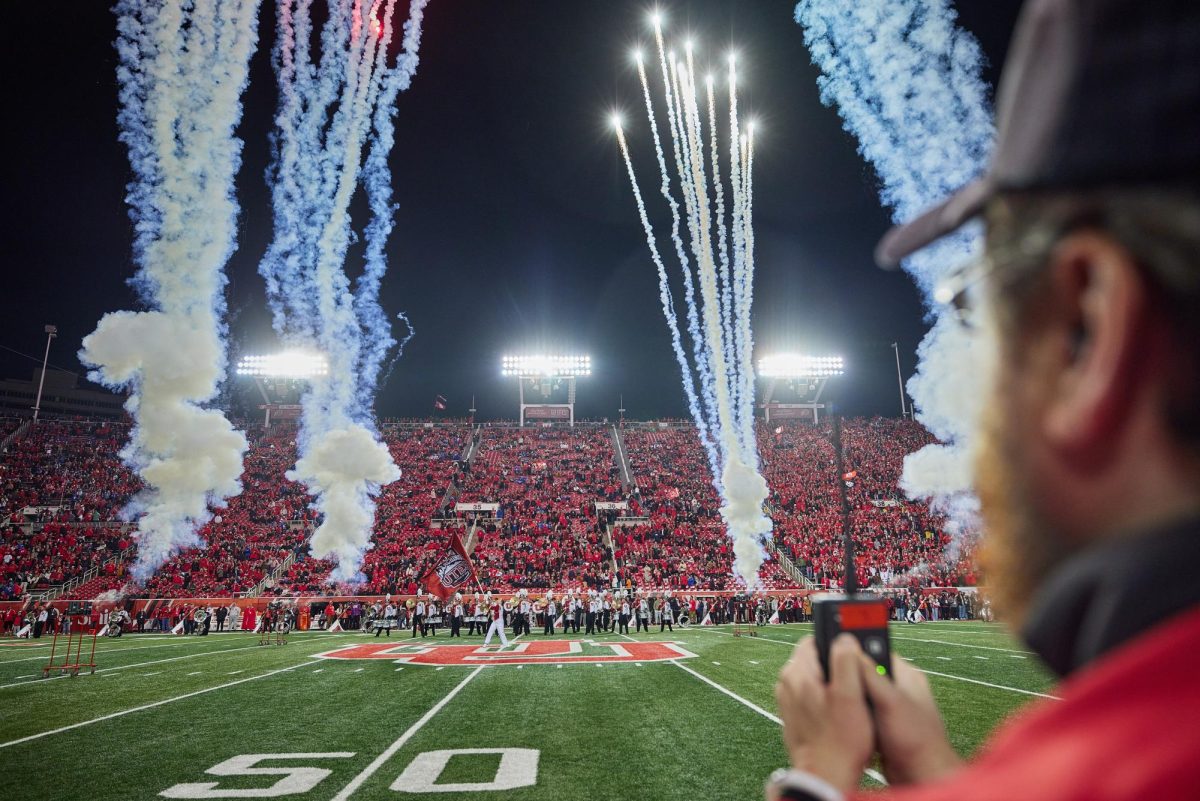Iranians and Supporters March in SLC as part of Global Freedom Rally for Iran
(Photo by Crystal Rose Fraughton | The Daily Utah Chronicle)
October 3, 2022
Over 1,000 protestors gathered in downtown Salt Lake City on Oct. 1, making Salt Lake City one of over 150 cities across the world to join the Freedom Rally for Iran.
Ongoing protests in Iran were sparked by the death of 22-year-old Mahsa Amini. Amini died on Sept. 16 while in the custody of Iran’s morality police after being detained for not wearing her hijab in accordance with Iran’s strict dress code for women.
The protest was organized by the Persian Student Association at the U and began at Washington Square Park where protesters of all ages, many from Iran, gathered in a large circle in the courtyard.
An Iranian woman led the group’s first chants in Farsi, also referred to as Persian.
“The main ones that she’s been chanting is, ‘Woman Life Freedom!’” translated Rana, another protester who asked to only be identified by her first name for safety concerns.
The other main chant, “Death on Dictator,” means “This is our last message,” according to Rana.
“We’re telling for the last time that we do not want Islamic Republic Regime,” she said.
Later, protesters marched State Street toward the Capitol where they continued their call-and-response chants while cars honked to show their support.
“We’re outraged,” said the first speaker, an Iranian woman. “Outraged by this dictatorship that has kept our country, our people, bodies, voices and even beliefs hostage for decades. We’re furious because of the lifetime of pain and trauma we’ve endured. We’ll never be able to take back all these years that we’ve forcefully spent away from our parents, siblings or close friends, because the Islamic Republic has made it so that our own country, with all its beauty and resources, is not big enough for our dreams.”
At least 92 protestors have been killed in Iran, the Iran Human Rights group claimed on Sunday.
Rana was born and raised in Iran and has been in Utah for 20 years.
“I escaped religious persecution that was happening in Iran at that time,” Rana said. Most of her husband’s family is still there. She gestured to the other protesters, “And many, many of their stories [are] the same.”
Benyamin Mohmmadzadeh, who came to the U.S. six years ago from Tehran, came to the rally with his friend who was also protesting. He said keeping in contact with his family since Amini’s death has been difficult.
“There is a whole shutdown,” Mohmmadzadeh said. “Today they showed me even that their T.V. was blurry and they were not able to really watch the T.V. channels.” Mohmmadzadeh added that his parents said text messages aren’t being delivered.
In the two weeks since Amini’s death, internet blackouts and social media restrictions have threatened Iranians’ ability to organize.
Still, as of Oct. 2, Amini’s name has been retweeted more than 40 million times. Iranians living around the world have taken to social media to speak for their friends and family who don’t have internet access, urging people all around the world to spread the word about the human rights violations in Iran.
Mohmmadzadeh said he is not alone in thinking this movement is a revolution. He said this time is different from the protests in 2009 or 2019.
“I think this is the reason why there is a lot more sympathy by celebrities or other foreign countries and diplomats about this revolution, because this unites everyone just to support women,” Mohmmadzadeh said. “Everyone here with their different ideas or thoughts about how the future of Iran should be has gathered together to support the women.”
Mohmmadzadeh’s friend, Ekaterina Burtsava, said she hopes to see the same kind of inspiring unity in her own country.
“I’m not Iranian, I’m Russian,” Burtsava said. “As someone who comes from [an] authoritarian and suppressive government, I see a lot of parallels. And also as a woman, to me, it is terrifying what is happening right now, what is happening in the U.S. with women’s bodily autonomy. It’s an issue of women’s rights.”
Speakers compared the Islamic Republic of Iran to ISIS and Al-Qaeda and urged non-Iranian people, especially in democratic countries, to let their leaders know they care about Iran.
Another speaker, Navid, was a political prisoner in Iran.
“I just want to let you know, right now, after 20 years of my own activism, I want to congratulate the people of Iran,” Navid said. “This is the first time that I’m seeing everyone is united. This is the first time I’m seeing bravery. Congratulations to the new generation.”
Mehdi Eskandari, who is not affiliated with the Persian Student Association, spoke and said we have to show our support but the real courage lies in the people protesting in Iran.
“I’ve had family and friends that have been arrested,” Eskandari said. “I’ve had family and friends that have been shot, injured. My friends and family are all very strong people. I am proud of them. Sometimes when they see too much pain, it is hard for them to keep strong, so it is up to me and us to give that hope and strength back to them. Part of these protests are for this reason.”


